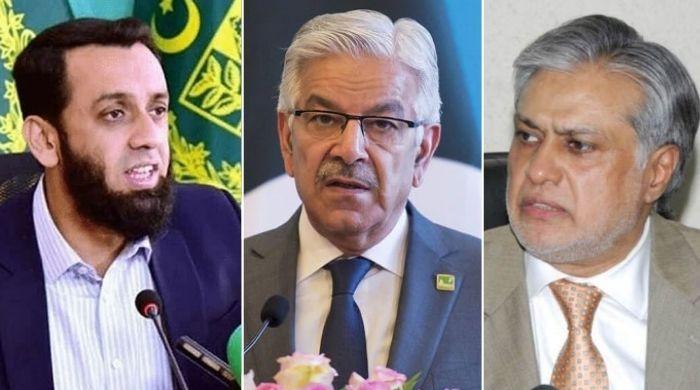Pakistan Condemns India’s Exploitation of Pahalgam Attack
Pakistan has strongly criticized India for allegedly exploiting the Pahalgam attack, which resulted in the loss of 26 tourists’ lives. Pakistan asserts that India is leveraging this incident to suspend the Indus Waters Treaty for domestic political advantage, warning against what it perceives as an attempt to initiate a “hydro war” without proper investigation or evidence.
According to Pakistan, India has linked Islamabad to the attack without providing any substantiating evidence, leading to a series of punitive actions aimed at downgrading bilateral relations. These measures purportedly include the suspension of the Indus Waters Treaty, revocation of visas for Pakistani citizens, and closure of the Wagah-Attari border crossing.
Pakistan claims to have responded in a similar fashion to India’s actions and has cautioned about the potential suspension of the Simla Agreement, in addition to closing its airspace to Indian flights. Islamabad has refuted any involvement in the attack and has offered to participate in an impartial and transparent inquiry.
Prime Minister Shehbaz Sharif, while denouncing the unfortunate incident, has expressed willingness to engage in any unbiased, transparent, and credible investigation into the matter.
Defense Minister Khawaja Asif stated that India would not benefit from violating the Indus Waters Treaty, given its international safeguards. He noted that India has not responded to Pakistan’s offer for an international probe into the Pahalgam incident, emphasizing Islamabad’s readiness to participate in a transparent investigation.
The Indus Waters Treaty, brokered by the World Bank, was signed by India and Pakistan in 1960. Concerns have been raised that by suspending the treaty, India could potentially restrict the flow of rivers into Pakistan, thereby cutting off a vital water source for irrigation and domestic consumption.
“Where will India divert the water, it lacks the capacity to either divert or halt it,” he stated. He further emphasized the nation stands united with its armed forces, prepared to respond decisively to the Modi government, drawing parallels to their response to the Pulwama incident.
He further warned that a confrontation between two nuclear-armed nations would constitute a grave danger to both regional and global stability.
“Should matters escalate, no force could restrain us,” he cautioned, adding that if Modi opts to intensify tensions, they would pursue him relentlessly.
He accused Modi of disseminating misleading information, echoing methods employed during the Pulwama incident, while asserting Pakistan’s capability to mount a robust response.
Separately, Minister for Information Attaullah Tarar briefed foreign correspondents on India’s assertive measures, affirming Pakistan’s capacity to counter any Indian misadventure with unwavering strength, as demonstrated historically.
He remarked, “It appears to me that this entire episode was orchestrated for access to one of the most prized resources of our time: water,” condemning India’s independent choice to halt the Indus Waters Treaty.
He denounced the suspension of the treaty as an “immature and imprudent” act by India.
He referenced principles of international law, asserting that “when two parties mutually consent to a treaty, it cannot be unilaterally revoked, suspended, or terminated; any such action necessitates mutual agreement.”
He cautioned that any targeting of Pakistan’s water resources, essential for its agricultural sector, would represent “an act of encroachment, an unfair and unjust measure.”
Tarar asserted Pakistan’s position, affirming that “the Prime Minister and the National Security Committee have unequivocally stated that any attempt to redirect or impede Pakistan’s water supply will be met with the full extent of our strength and capability.”
The minister cautioned India against interpreting Pakistan’s stance as a sign of weakness.
“Let me stress that our words should not be misconstrued as weakness. Pakistan has consistently defended itself and will persist in doing so,” he stated, alluding to Pakistan’s reaction following the Pulwama incident.
Referring to the Pulwama incident of February 2019, the minister said India has tested “our patience before and we emerged unscathed, leaving India to regret its actions.”
Mentioning the attack on Pakistani High Commission in London, Tarar said it is India’s extremist ideology which prompts its people to attack our foreign missions. Tarar said India had pre-conceived notions about the Pahalgam incident, may be the purpose was to pin the blame on Pakistan.
He stated that all allegations made by India against Pakistan lack substance. He pointed out that the Pahalgam area is located over 150km away from the Line of Control and that India has failed to provide any concrete evidence to support its claims.
Meanwhile, Deputy Prime Minister and Foreign Minister Ishaq Dar engaged in discussions with British Foreign Secretary David Lammy and Chinese Foreign Minister Wang Yi, providing them with updates on India’s independent actions and the regional dynamics, according to the Foreign Office.
During his exchange with Lammy, Dar underscored India’s unfounded allegations, false accusations, and its unlawful decision to suspend the Indus Waters Treaty — a breach of international commitments.
He reiterated Pakistan’s commitment to safeguarding its national interests while fostering peace and stability. Lammy emphasized the importance of de-escalation through diplomatic channels, while Dar affirmed Pakistan’s openness to an impartial and transparent investigation.
In his dialogue with Wang Yi, Dar conveyed appreciation for China’s steadfast support and rejected India’s unilateral measures and propaganda. Both leaders reaffirmed close collaboration and their dedication to upholding regional peace and stability.



Comments (0)
No comments yet. Be the first to comment!
Leave a Comment